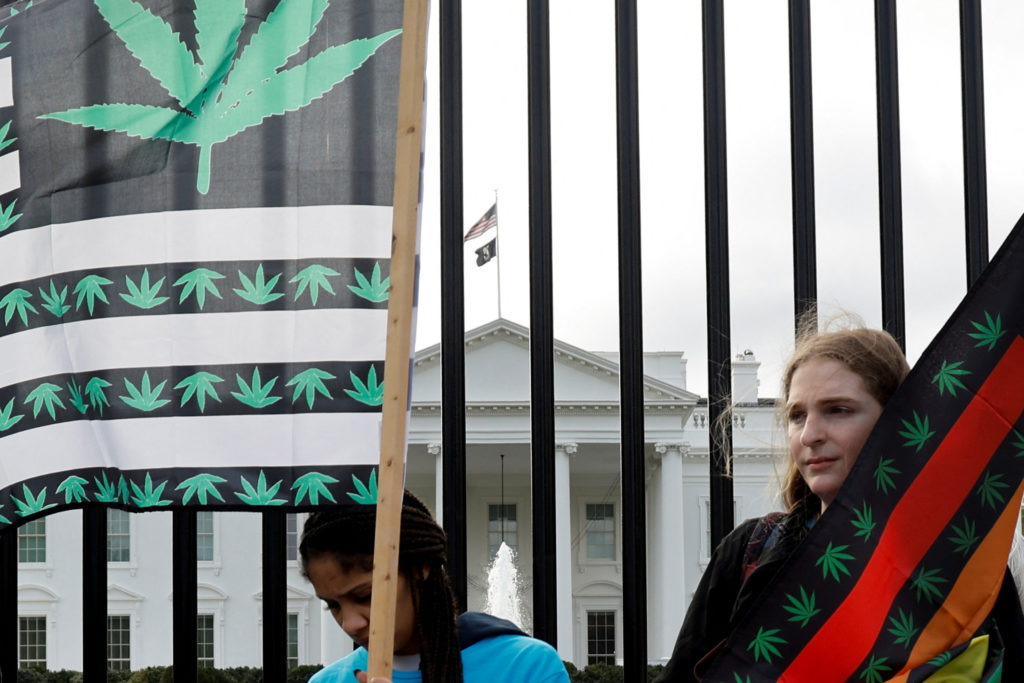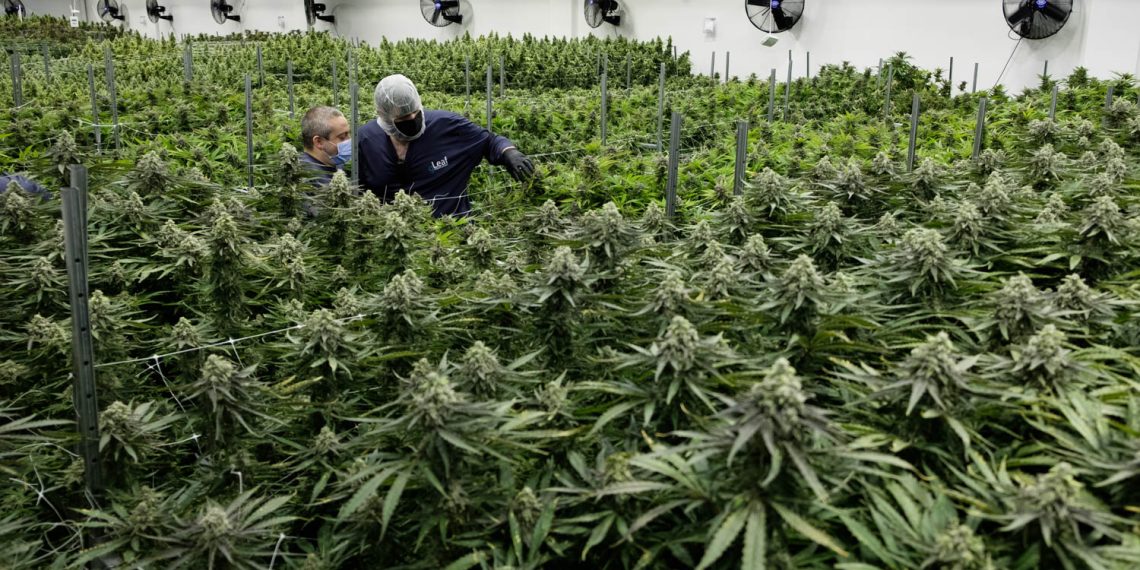The U.S. Justice Department has taken a significant step towards reshaping federal drug policy by proposing to reclassify marijuana, aiming to move it from a category alongside heroin to one with less severe penalties.
This recommendation, made by Attorney General Merrick Garland, follows President Biden‘s initiative to review the drug’s classification, fulfilling a campaign pledge.
The proposed change would see marijuana shifted to a schedule three drug, indicating a lower potential for abuse and dependence compared to schedule one substance.

Shares of cannabis companies surged following the announcement, indicating investor optimism about potential policy shifts.
This move could narrow the gap between state and federal cannabis laws, as nearly 40 states have legalized marijuana in some form.
The proposal, now under review by the White House Office of Management and Budget, could lead to lighter criminal penalties, increased medical research opportunities, and greater private investment in the cannabis sector.
The public’s growing support for marijuana legalization, reflected in polling data, adds momentum to the push for policy reform.
While the reclassification does not equate to legalization, it lays the groundwork for a shift in approach towards cannabis at the federal level.

Proponents argue that easing restrictions could benefit cannabis businesses, allowing for greater access to capital, reduced banking hurdles, and improved market legitimacy.
However, some groups, such as Smart Approaches to Marijuana, remain critical of the move, expressing concerns about potential increases in youth consumption and addiction.
Despite differing opinions, the proposed reclassification marks a significant development in the ongoing debate over marijuana policy in the United States.




